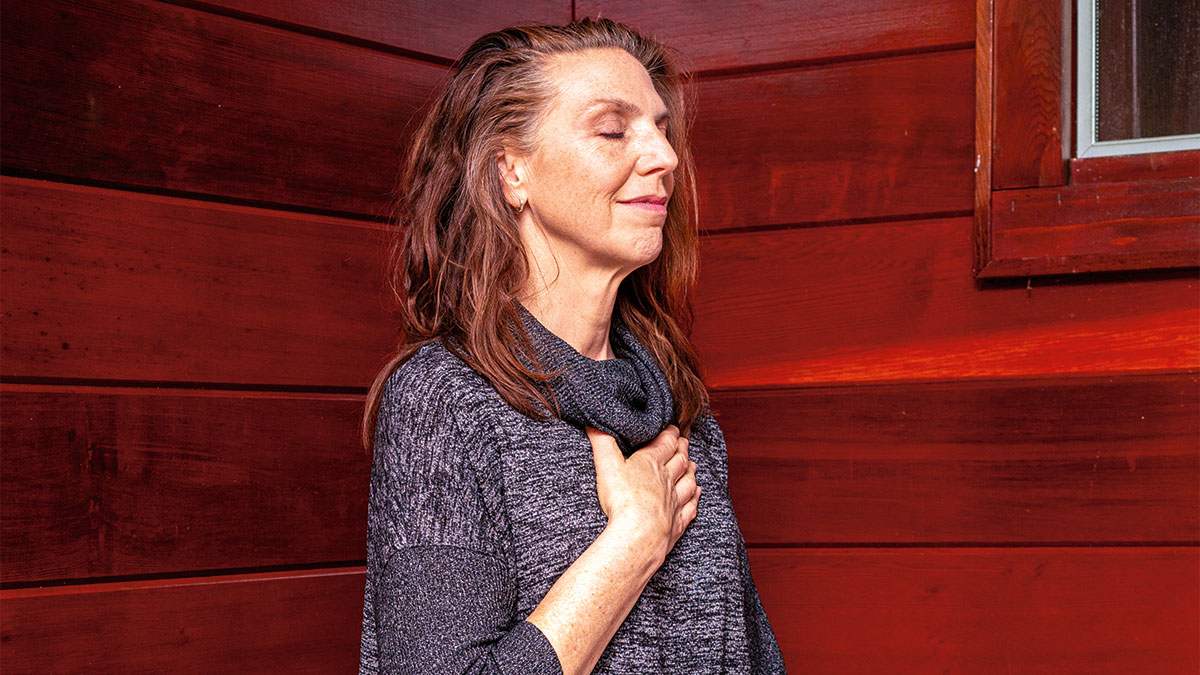The first time I tried to meditate, I didn’t like it. It was long. It was difficult. Worst of all, I felt bad at it. I was a college student attending a meditation talk and practice session. During the practice, I couldn’t experience anything but my default thought cascade. I didn’t try meditation again for several years, until I took yoga classes that incorporated it. Gradually, I became more comfortable with meditation and attended workshops and retreats. Over time and with practice, I’ve noticed less self-judgment both during meditation and in general, as well as many other benefits such as feeling more joy in everyday moments.
Over the past several years, I’ve taught meditation to college students, and I recall the self-critical flavor of my first attempt when students describe their own challenges. I’ve come to view self-criticism as an important hindrance to highlight for both beginning and advanced practitioners. Meditation teachers frequently combine the issues of self-criticism and judgment; they explain that meditation reduces automatic judgments by bringing awareness to the present moment and cultivates a beginner’s mind without preconceived ideas and opinions. Noticing without judging naturally encompasses the self, so over time, meditation usually decreases self-criticism. Research on the mental health benefits of meditation pinpoints reducing judgment as a key reason why meditation improves depression, anxiety, and stress, conditions strongly associated with self-criticism.
“When you lose your focus, can you experiment with bringing your attention back to your breath as kindly as possible?”
Even though self-criticism can be viewed as just another form of judgment, as just another thought, it’s worth considering self-criticism on its own. As wonderful as it is that meditation practice usually decreases self-criticism over time, many people won’t stick around to find out. Sitting with the pain of self-criticism in the form of “I’m bad at meditating” can provoke a seemingly intolerable avalanche of painful thoughts, memories, and feelings that people might want to avoid or escape. So, let’s tackle self-criticism up front.
Several mental habits make us vulnerable to self-criticism. First, it’s easy to stop trying things we find difficult, to absorb the mentality of “I’m good at X, so I do it, but I’m bad at Y, so I don’t do it.” Second, it’s a common misconception that meditation means accessing a perfectly focused mental state—peaceful and calm. If you’re not having that idealized experience, it’s easy to assume you’re the problem. Third, people often view self-criticism as a personality feature (“I’m my own worst critic”), rather than a conditioned mental habit that can be changed. The habit of self-criticism then shows up in meditation, often in the form of constantly judging one’s own practice.
In my experience, the biggest obstacle to meditation among beginners is self-judgment. I tell my students that it takes effort not to judge yourself. It’s hard not to judge where your mind goes, or how many times you must bring it back to your breathing. Almost certainly, you’ll lose focus, even thousands of times. These distractions are normal, if frustrating. Distractions are necessary for developing attention (and research studies clarify that both redirecting attention and sustaining attention contribute to mental health). The “reps” of returning attention to the breath, with as little judgment as possible, improve focus and reduce self-criticism. Self-criticism is a difficult mental habit to change, including through meditation. But reducing self-criticism is strongly associated with better mental health.
Self-criticism can lurk, obviously or subtly, within what in Buddhism is called the five hindrances: sensory desire, hatred, sloth and torpor, restlessness and worry, and doubt. For instance, self-criticism is a form of hatred; self-hatred is expressed while castigating yourself for not practicing well. Self-criticism about meditation (“I’m bad at meditating”) might also mask worry, restless impatience, struggle with the effort of practice, and doubt about the utility of meditation itself.
Buddhism teaches that the five hindrances are the common obstacles to meditation. Yet because self-criticism in meditation isn’t often addressed in teachings about the hindrances, practitioners often view self-criticism as their own unique struggle. Practitioners may overly identify with self-criticism, or alternatively deny its presence within practice contexts that emphasize no-self, reducing judgment, and taming the ego.
I once heard someone ask the teacher Thich Nhat Hanh, “How do I love myself?” I assumed his response would involve handling thoughts differently; however, his answer focused on noticing bodily sensations kindly. He explained how he greets his body in a gentle, loving way when he sits down to meditate: “I have a body. Hello, body.” Next, he described observing bodily sensations, including breathing, with deep attention. He also demonstrated the way he spoke to his body: kindly, patiently, and respectfully. And he modeled how cultivating a caring relationship with the body might then radiate toward thoughts and other experiences.
Inspired by Thich Nhat Hanh, I challenge my students: “When you lose your focus, can you experiment with bringing your attention back to your breath as kindly as possible? What if you make that your practice goal, rather than trying to maintain your focus?” I also encourage my students to observe physical discomfort, boredom, and even intrusive thoughts or memories in a loving way. The practice is to maintain a “kind witness” perspective rather than becoming submerged in the thought or feeling, and to return your attention quickly to the breath or another object of focus.
Self-criticism in meditation is not just an issue for beginners. It may be harder to detect in experienced meditators who know one is not supposed to judge one’s meditation or make meditation an ego project. Self-criticism can arise as a sense of striving, perhaps masquerading as wise effort. Most of us want to be aware of how the practice is unfolding and what adjustments might be helpful. Such awareness, however, can slide into berating yourself (perhaps very subtly) if your practice isn’t unfolding in the way you’d prefer. For seasoned meditators, self-criticism might hover in the background, making it harder to spot.
Sometimes, I still criticize myself about my meditation practice, especially about my consistency and attention. I can even criticize myself for criticizing myself about meditation. But I also keep cultivating a gentleness around the criticism. As I practice, I work to strengthen my attention to the breath and other present-moment sensations, so that if criticism is there, it’s not center stage. Working with students just starting meditation, whose self-criticism often screams instead of whispers, reminds me that I’m not alone. Teaching has refined my view of self-criticism as a common hindrance that can abate with friendliness, nonidentification, and practice.

